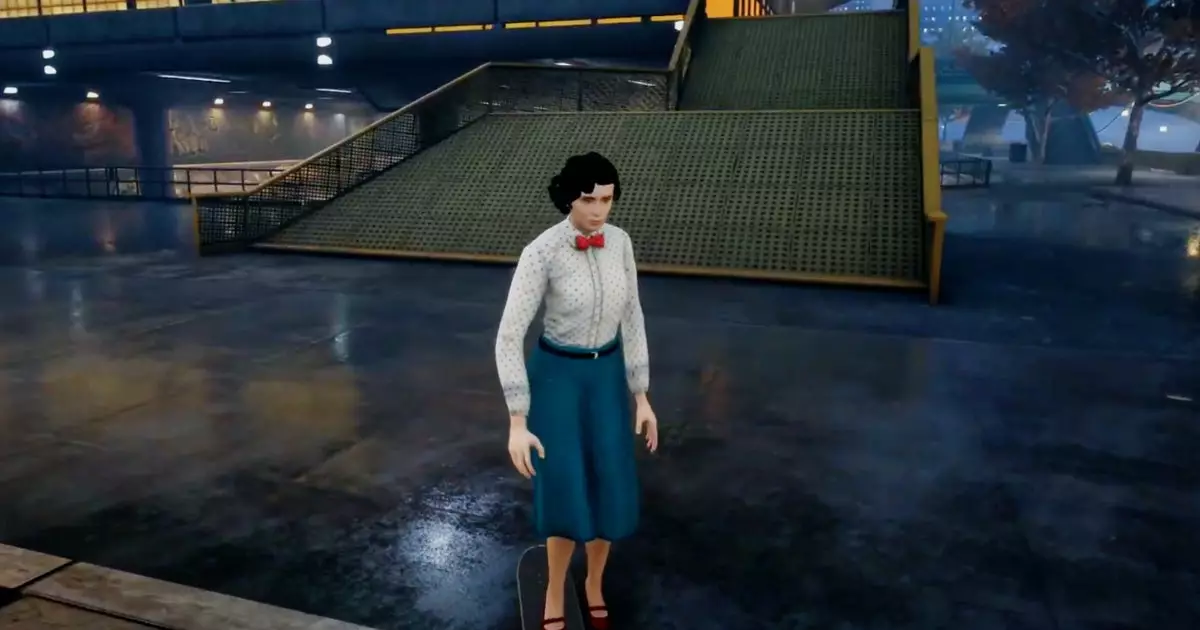The launch of Tony Hawk’s Pro Skater 3+4 isn’t merely a new chapter in a beloved franchise; it signifies a seismic shift in how players interact with classic games. While traditional releases focus on polished graphics and refined mechanics, today’s gaming landscape increasingly champions user-generated content. This shift empowers players to become co-creators, transforming static experiences into dynamic playgrounds of imagination. The inclusion of modding capabilities in THPS 3+4 exemplifies this evolution, heralding a future where communities not only consume content but actively shape it. Such democratization fosters a richer, more deeply personalized game experience, moving away from the one-size-fits-all approach and toward a collaborative artistic ecosystem.
Community-Driven Innovation: Beyond Developer Limitations
What distinguishes the current modding scene around THPS 3+4 is the sheer scope of creativity unleashed by dedicated fans. Modders like Huckleberrypie have surpassed merely swapping characters; they breathe new life into the game by reimagining its world and narratives. From character skins that range from Terry Honk as Barbie to Tommy Angelo and Elsa from Frozen, the diversity showcases an almost obsessive commitment to novelty. These modifications transcend the game’s original design, highlighting how communities intentionally blur the boundaries of fiction and fandom. Their work reveals an important truth: players are eager not just to play but to reshape and redefine their digital environments according to their fantasies and humor.
Blurring the Line Between Reality and Parody
One of the most fascinating aspects of this modding culture is how it sustains a playful paradox—serious creativity intertwined with irreverent parody. Mary Poppins as a skater, complete with a backstory involving depression, rock music, and breaking into a 900-degree spin, is a prime example. The narrative, although tongue-in-cheek, taps into deeper themes of nostalgia, resilience, and the human desire for escapism. It underscores a vital insight: games are more than entertainment; they are platforms for storytelling, satire, and cultural commentary. Mods turn the game into an absurdist canvas, challenging notions of authenticity and inviting players to laugh, reflect, and engage with familiar characters in unexpected contexts.
The Cultural Significance of Nostalgia and Personal Expression
What makes modding in THPS 3+4 particularly compelling is how it amalgamates nostalgia with personal expression. For many, the Tony Hawk series isn’t just a game; it’s a time capsule of adolescence, a repository of memories linked to skateboarding culture and 2000s pop culture. When modders introduce characters like CJ from GTA or icons such as Elsa, they are not only offering novelty but also forging personal and collective identities within a virtual space. These modifications affirm that gaming remains an influential form of storytelling and self-representation, capable of adapting to the tastes and humor of each community. It’s a testament to the idea that gaming experiences, when open-ended and community-driven, become truly unique and enduring.
The Future of Gaming: A Playground of Infinite Possibilities
The momentum behind the modding scene for THPS 3+4 offers a promising glimpse into the future of interactive entertainment. As players develop sophisticated tools like custom restarts, free-roam cameras, and character swaps, they are essentially co-developing the game’s evolution. This collaborative environment nurtures innovation far beyond what traditional developers could achieve within limited timelines. It also signals a paradigm shift—games are no longer static products but evolving platforms fueled by community passion. These modifications foster a sense of ownership and belonging that enhances enjoyment and longevity, transforming simple skateboarding simulations into vibrant digital art projects that celebrate creativity, humor, and cultural discourse.
In essence, the ongoing modding frenzy around Tony Hawk’s Pro Skater 3+4 exemplifies a new chapter where creative agency, nostalgic reverence, and community engagement coalesce to redefine what gaming can be. It reveals that, at its core, video games are more than mere entertainment—they are a canvas for individual expression, cultural commentary, and collective innovation. The skateboard may be virtual, but the spirit of experimentation—bold, rebellious, and endlessly inventive—is very much alive.


Leave a Reply